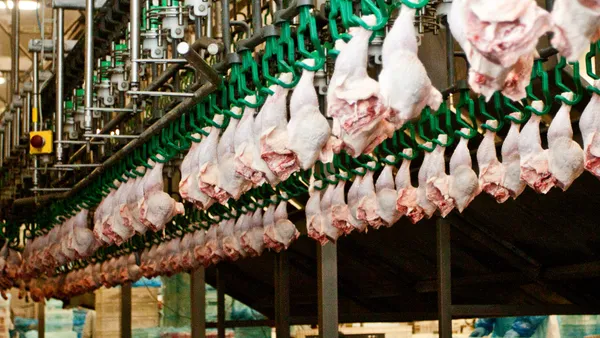Dive Brief:
- The U.S. Department of Labor has banned Harvest Plus LLC from participating in the H-2A program for three years and fined it $252,475 in civil penalties, according to a Tuesday news release.
- The farm labor contractor, based in Kennewick, Washington, allegedly withheld H-2A workers’ wages, made illegal pay deductions, forced them to live in unhealthy living conditions and transported the workers in “unsafe” vehicles driven by people without licenses or permits — among other labor violations.
- “The blatant disregard for federal regulations shown by Harvest Plus LLC put the safety and health of hundreds of temporary workers at serious risk,” Seattle’s WHD District Director Thomas Silva said.
Dive Insight:
Farmworkers have long been a vulnerable population in the workforce; activists such as Cesar Chavez advocated for more protections during the 1960s.
Earlier this year, the DOL passed a rule that allows temporary farmworkers employed under the H-2A visa to decline employer-sponsored meetings set to discourage labor organizing. The rule also allows guests, such as labor advocacy groups, to visit workers’ employer-sponsored quarters.
Along with specific pay rates and guaranteed employment hours, DOL has specified that H-2A workers “must be provided with safe and clean housing” and safe transit to and from the job site if they need to work overnight.
Harvest Plus housed workers in moldy motel rooms that were also overcrowded, according to the Wage and Hour Division. Likewise, on-the-ground commutes consisted of “dilapidated vehicles with broken or missing seatbelts and lights and inadequate seats.”
The contractor also failed to reimburse workers for transportation between their home country and the state, among other violations, DOL said.
By banning Harvest Plus LLC from the program, Silva said, the DOL “has sent a clear signal” that it will not let “such egregious actions” slide.
“We will safeguard U.S. jobs and prevent unscrupulous employers from profiting while endangering vulnerable workers and denying them their hard-earned wages,” Silva said.
DOL also pointed to its Agriculture Compliance Assistance Toolkit, designed by the agency to help employers adhere to the law when it comes to employing farmworkers.












